Vidin
Again I am behind with my notes. I want to find a quiet and pleasant spot in a comfortable hotel where I can stay to write. I have set my eyes on Vidin, the other town besides Ruse with a railway bridge between Bulgaria and Romania.
I like those huge socialist built hotels. Usually they have big rooms, a restaurant and balconies. I find such a hotel in Vidin. It promises a balcony with view of the majestic Donube river, and even a swimming pool.
Station of Sofia
The only direct train linking Sofia and Vidin takes more than six hours for 188 km. It is supposed to leave at the main station in Sofia at 11.05 am. The modern, new station looks more like an airport terminal. The arrivals and departures board in the station is only in Kyrillic. But there is a train leaving at 11.05. However, holding my phone with the translation app against the letters does not give a conclusive result. It appears like the train at 11.05 has different destinations. I cannot discover Vidin.
Forest railway engine displayed in the station of Sofia
After I have a look at the historic locomotive displayed in the station I proceed to platform 5. A train composed of 4 old German carriages completely covered in graffiti is waiting. A big family of a leathery grand-grandmother, grandmother, mother and teenage children is having a discussion with a stressed out, sweating conductor taking care of his papers. I show him the ticket on my telephone and he points at the door of the carriage in front of me. The compartment is empty and I have time to select a seat where I can open the window. The multi-generation family is still discussing on the platform.
The compartment quickly starts to fill up. It turns out that most of the travelers have a reservation, which is not madatory. Now I am afraid that somebody will claim my seat with the only window to open. Eventually the big family claims another pair of double seats a row away from me. A gypsy family with beautiful mother and a fat son playing with his phone is claiming another double seat. When the rightful owner arrives, another gypsy grandmother with what must be her grandchild, she doesn’t claim her rightful seat but goes elsewhere without discussion. In front of me an old man looking like a farmer with a worn out hat sits down. The compartment fills with the vapor of alcohol. Another farmer comes in, complains loudly about something in Bulgarian from what I can only discern the word air-condition and moves to another compartment.
After the engine has coupled and the brakes are checked – a thing which you do not see frequently any more with the modern train sets used in most of Europe nowadays - the train leaves on time from Sofia. For unknown reasons it takes a detour to the East, turning north all around Sofia to eventually head towards the valley of the river Iskar. I guess before the train starts along the scenic route the BDZ (Bulgarian Railway company) wants to give an impression of all the abandoned industrial estates which they lost as customers due to the demise of communism.
With more noise than speed train 7622 follows the bends of the river north-east. And I like the noise, the tac-tac .. tac-tac of the wheels hitting the joints of the rails, the screeching of the wheels in the bends, the horn and the sound of the engine. Better when the train determines the sound in the compartment than the cacophony of all the mobile devices of the passengers.
Nobody seems to be especially interested in the magnificent landscape we pass through. The river Iskar forms the southern border of the central Balkan national park. Rock faces tower above river and railway line. Only few spots allow enough space for a settlement which usually is adorned with an orthodox church or an interesting bridge.
There are numerous tunnels where the noise from outside is amplified and reflected inside. Nobody complains that the window stays open. On the contrary, somebody has managed to open one of the other windows. It involved breaking away one of the window handles which he leaves on the little table next to the window.
Bulgarians are fanatic smokers. The gypsy family leaves their fat son alone at every major stop to get outside just long enough to inhale a few strokes. In the coach ahead of ours somebody smokes secretly out of one of the windows, probably the toilet or the entrance door. I am glad that my glasses keep the flying ashes away. However, he also disposes of his fag by throwing it out of the window. Afterwards somebody will complain that the train caused a forest fire. But it was not the train, it was one of the users. No wonder, that many of the windows are locked here and that modern trains lack opening windows at all.
At Mezdra train 7622 leaves the main line which continues towards the east to Varna and heads northwest towards the Danube river and Vidin. The landscape becomes flatter, the mountains stay behind and give way to fields of grain and sunflowers which just begin to have their first yellow blossoms.
Many of the stations here are ruins. And there are more ruins around the stations: this is the poorest part of poor Bulgaria and many houses in the villages seem to be abandoned, the roofs collapsed, the yards full of junk. Almost every station has abandoned industrial buildings, sometimes enormous grain elevators. In the station of Bychinovtsi, where the branch line to Berkovitsa departs, an entire engine shed with water crane and the elevator for coaling the steam engines are rusting away. All the branch lines here are electrified. A big, graffiti covered electric railcar waits for passengers.
I prefer to see the ruins of neglect and decay which have a certain degree of romantic and scenic interest to the ugliness which modern constructions have added to the landscape intentionally in many western countries. There is little new construction here, except the motorway, which was built as a result of the new bridge.
The new Europe bridge across the Danube was built between Vidin in Bulgaria and Calafat in Romania in 2013. It has a length of 1971 m. Plans for building that bridge were first made in 1909. However, the problem became more serious after the collapse of Yugoslavia, when the shortest land link from central Europe to Bulgaria was interrupted. The ferry linking Vidin to Calafat was not able to cope with the amount of traffic any more. Shortly after the bridge was opened the ferry service stopped.
Like with the other connection across the bridge near Ruse there is only one daily passenger train linking Bulgaria and Romania. It leaves at 1 pm and therefore the trip from Sofia to Romania can only be done in the same day when leaving very early. There are few freight trains along this line which is single track most of the time in Bulgaria, and, as we will see, in a deplorable state in Romania.
After arrival I walk the 10 min walk to my booked hotel in the searing heat. The hotel is an enormous socialist construction which soars high above the surrounding run-down apartment buildings. To make it even more impressive the arriving guest has to ascend a flight of stairs from the pot-hole filled parking lot to the reception area. I show up sweat covered in front of the guy at the reception desk.
He gives me a room at the 11th floor. The view from the balcony across the Danube and the chaotic roofs of the suburb is spectacular. However, there is no chair on the balcony to really enjoy to sit there. The wooden railing is so loose that I rather do not lean on it. I might fall down with the wooden plank. There is a desk, but no comfortable chair. The water faucet in the shower is leaking and leaves the toilet floor wet all the time. I refill my water bottles before I leave for a walk into town before I discover the little sticker which warns guests that the water is not drinkable. I add some of the water disinfectant that I brought and leave.
At the reception I ask the guy about the swimming pool. He points to the left and tells me that there is a little pool. When I go there I first discover an overgrown childrens’ slide. Hidden behind a hedge there is a pool. It is empty and filled with rubbish. There are stretchers behind the pool and then I discover another rather uninviting makeshift little pool across an expanse of artificial grass next to two broken trampolines across the parking lot.
This is not the place I was looking for to write my notes in peace. I get my stuff and go for a walk into town to see what else can be discovered. The area around the hotel is one of those building projects originating in socialist times as a show case for modernity. There are big apartment blocks widely spaced apart with park like gardens in between, tile paved walkways and fountains. Dark throat like openings give access to parking structures under the apartments which were not used in the time of their construction because few people had a car and they are obviously not used now, because the entrances are overgrown and dirty. The basement of the apartment blocks was designed for shops and offices but most are closed with dirty or panel covered windows. The tile pavement is patchy and broken and there are frequent little steps so that you have to keep your head down to not stagger and fall. Weeds grow from the interstices between the tiles. The fountains are dry dirty and empty. The spots left free for trees or scrubs and basins designed for plants are empty.
The population of Vidin is constantly declining. In 1992 it was around 62.000, in 2021 only 35.700 were left. Where did all these people go to? The town is trying its best to appear pleasant for the remaining inhabitants and visitors. The promenade along the Danube with its flowerbeds is well maintained. The water sprinklers are on. Inside town municipal sweepers are busy. But everything around the apartment blocks is dirty and unmaintained. After Nikola, the guide in Sofia, told us that 90% of Bulgarians live in their own property, I would expect that these people would be interested to keep everything proper. But it is not.
The new part of Vidin
Once Vidin was the most important fortress in northwestern Bulgaria. In the time of the medieval, first Bulgarian kingdom it even was the capital of a dissident ruler. The castle played a role during the Ottoman rule of Bulgaria, serving as a weapon warehouse and a prison, also as residence for the Osman dissident and warlord Pazvantoğlu who at a certain point ruled a big junk of land between Belgrado and Ukraine.
The most famous part of the citadel, at the northern end of the park lining the Danube, was Baba Vida Fortress. It was frequently rebuilt from 10th-century Bulgarian fortifications, which were built upon the ruins of a 3rd-century Roman fort. The present state is how it remained after the Turks rebuilt it in the 17th-century. Today, Baba Vida castle functions as a museum.
Of the former 17th century citadel only the gates of the citadel are preserved. One is almost hidden behind a cafe along the water front, and three others open towards the land. Best preserved is southeastern Stambul gate. The walls between the gates have been demolished and the former fortifications turned into a ring of parks around the old part of town.
Strangely enough there are very few historic buildings left in what must have been the former interior of the fortress. Most are apartment blocks, built in the 20th century and obviously many already before communist rule. Many are poorly maintained.
One of the structures belonging to the fortress is the cross shaped barracks which is now a museum. When I arrive the door is locked. The guard is consulting his phone in the shade in a corner outside. When he notices me he pulls himself up, walks up to the gate and unlocks the door. There are no explanations in English inside. The exhibits are about the Balkan wars, fishery on the Danube, local traditional costumes and panels listing the buildings to be restored with help of the EU. There is no explanation about history of the castle and why so few of the original buildings are left. The citadel has not longer been used for defensive purposes since the end of the 18th century.
In 1859 the English traveler Samuel Baker happened to visit Vidin. He spotted 14-year old Florence Barbara Maria von Sass from Transylvania being sold into slavery to the Pasha of Vidin. Baker bribed her guards and took her with him, she eventually became Florence Baker, his wife and partner in the exploration of Africa.
There are some other buildings remaining from the Ottoman times inside the citadel. There is a mosque with library and a muslim churchyard. It is locked.
Outside the former city walls is the Konaka house, an 18th century traditional Turkish building. It now serves as the archaeological museum.
There is also the Turkish post office, the officers club which was converted into the Vidin arts gallery and the former bathhouse. The latter is turned into a family hotel. It is a beautiful building and includes a big, nice swimming pool in a garden complete with nice easy chairs and a cafe area. I am very much tempted to ask for a room, get my luggage and stay for another night.
The old town of Vidin also houses a beautiful synagoge. It was a ruin until recently and was restored to serve as a cultural center. When you see how it looked like before than it is hardly believable that they did the job.
In between all the modern apartment blocks there are some jewels of eclectic architecture from the turn of the 19th century. Many of them are on the restoration list of the EU.
The guy at the reception of the hotel has recommended a restaurant at the waters edge. It sits on a covered platform above the floods of the Danube and you can see the boats pass by. If there are any, because in the evening the boat traffic has all but died down. I have a perfect dinner in a pleasant atmosphere before I drag myself home across the urban wasteland to my hotel.
My night is restless. I have a fit of diarrhea. Maybe my water disinfectant was not good any more, it already was some years above date. Maybe I should not have had that refreshing water from those fountains dispensing drinking water in some spots across town. Or the heat of the day was too much or I had too much of that delicious food. I sleep very shallow. Then there are these elevators. They broadcast music all night and my room is the closest. I send both of them down to the ground floor but the music, a local radio station, persists. I had discovered a water reservoir which they have provided probably because the tap water is not drinkable. But now that I need it it is next to empty.
I open the door and stand on my balcony. Darkness has covered the town. The spaces between the apartment blocks are unlit. There is little traffic on the river. Below the hotel a couple of little boys play soccer on the yard in front of a bar. Are they not tired?
Bus stop
Sources:
Link to the previous post:




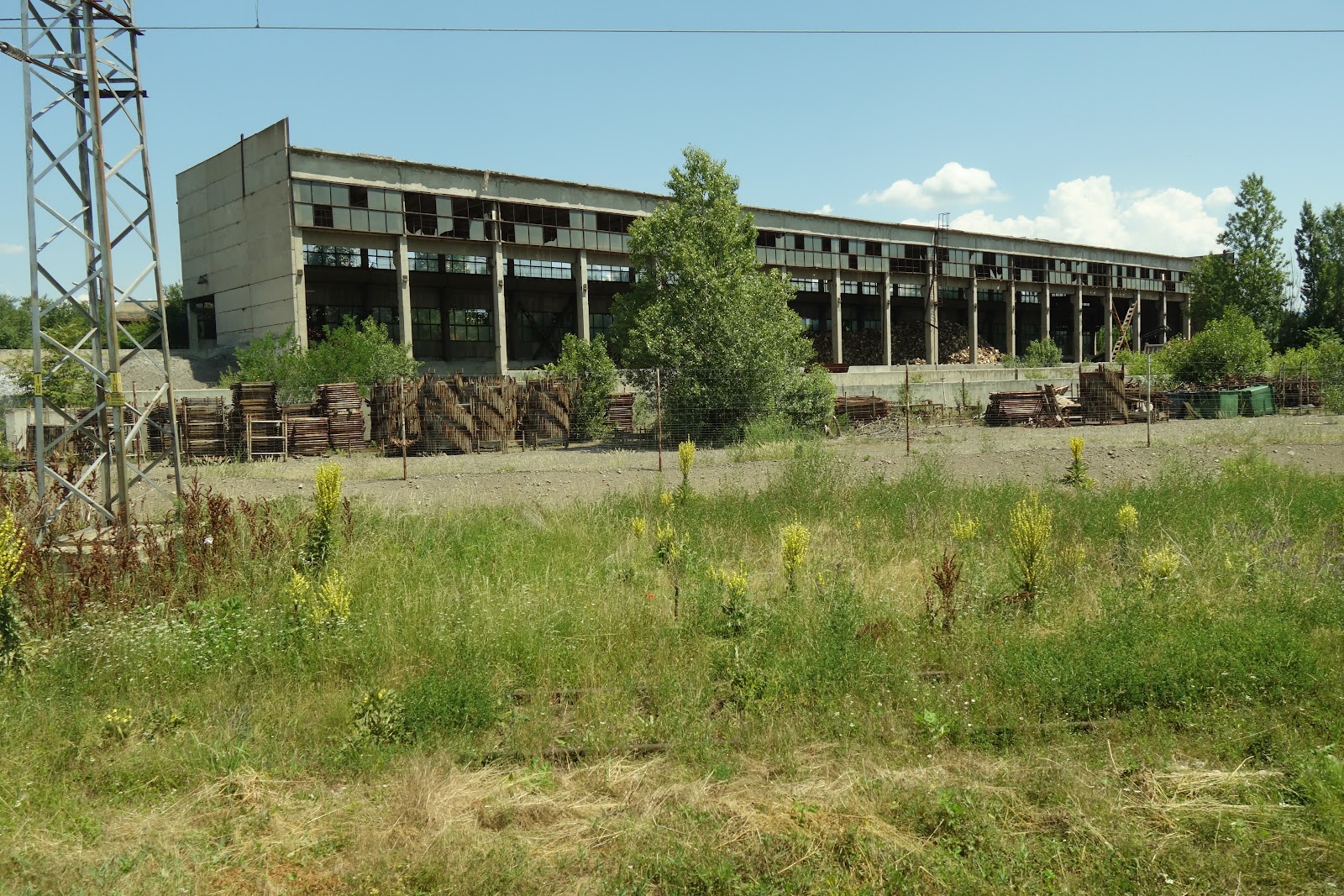
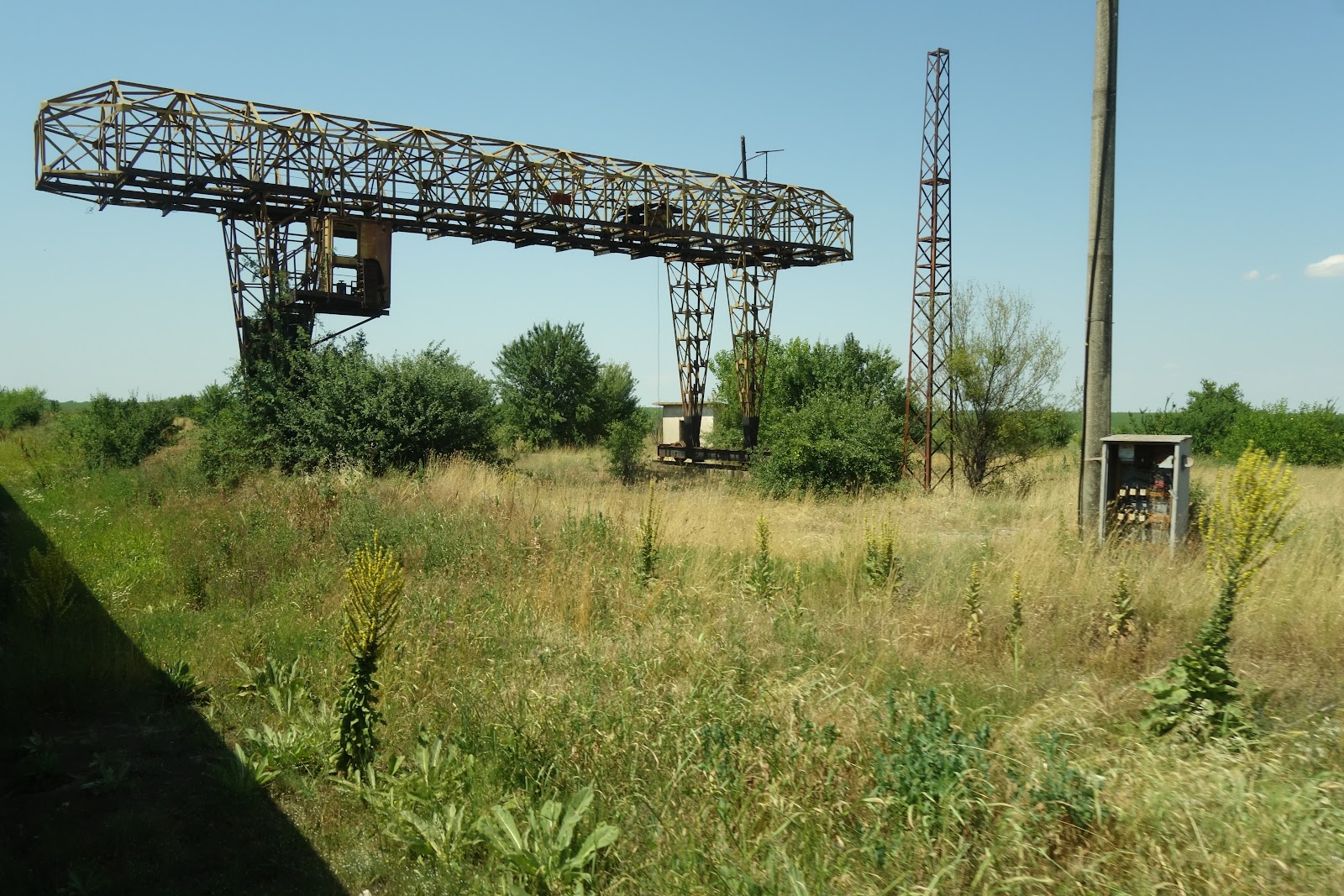









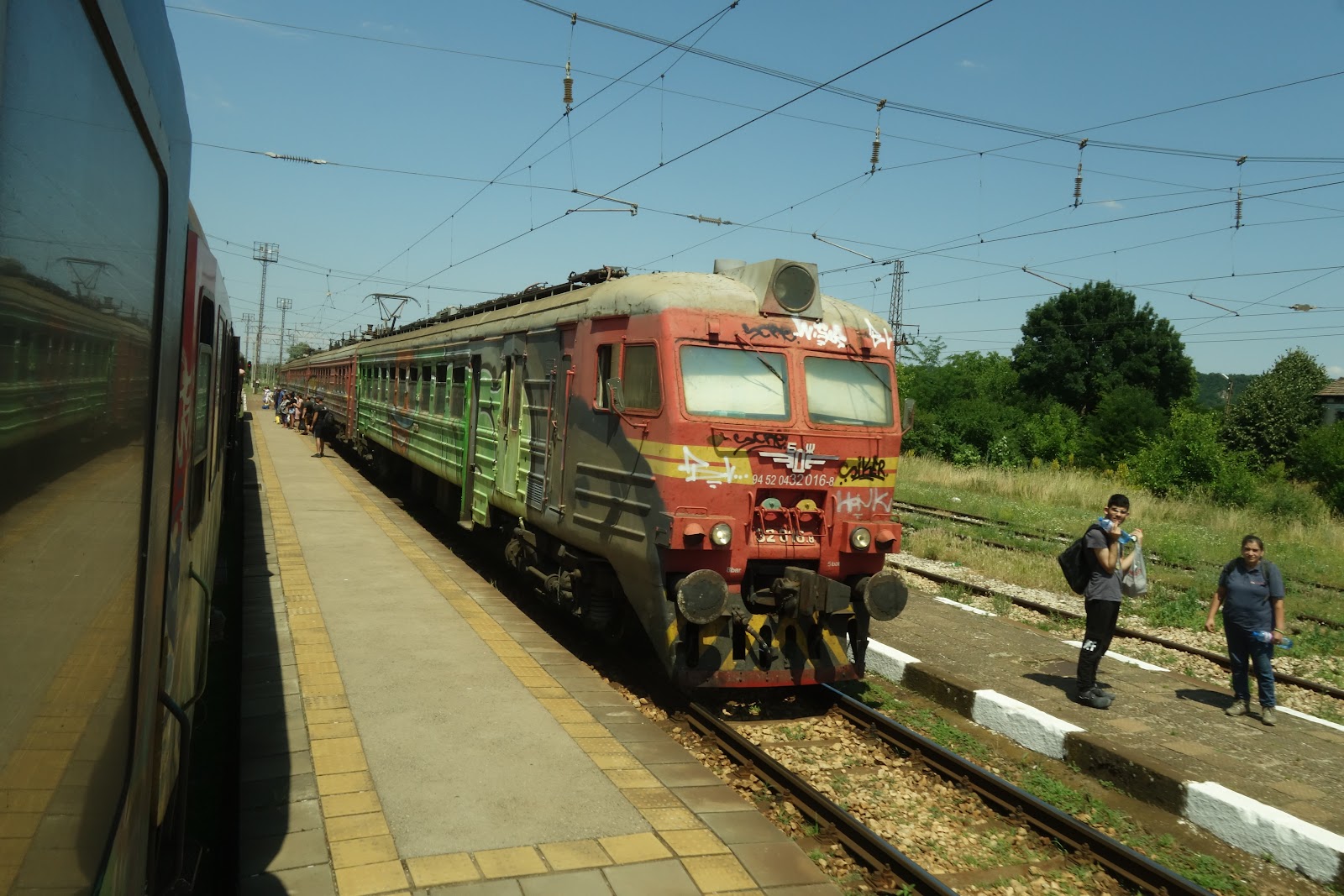






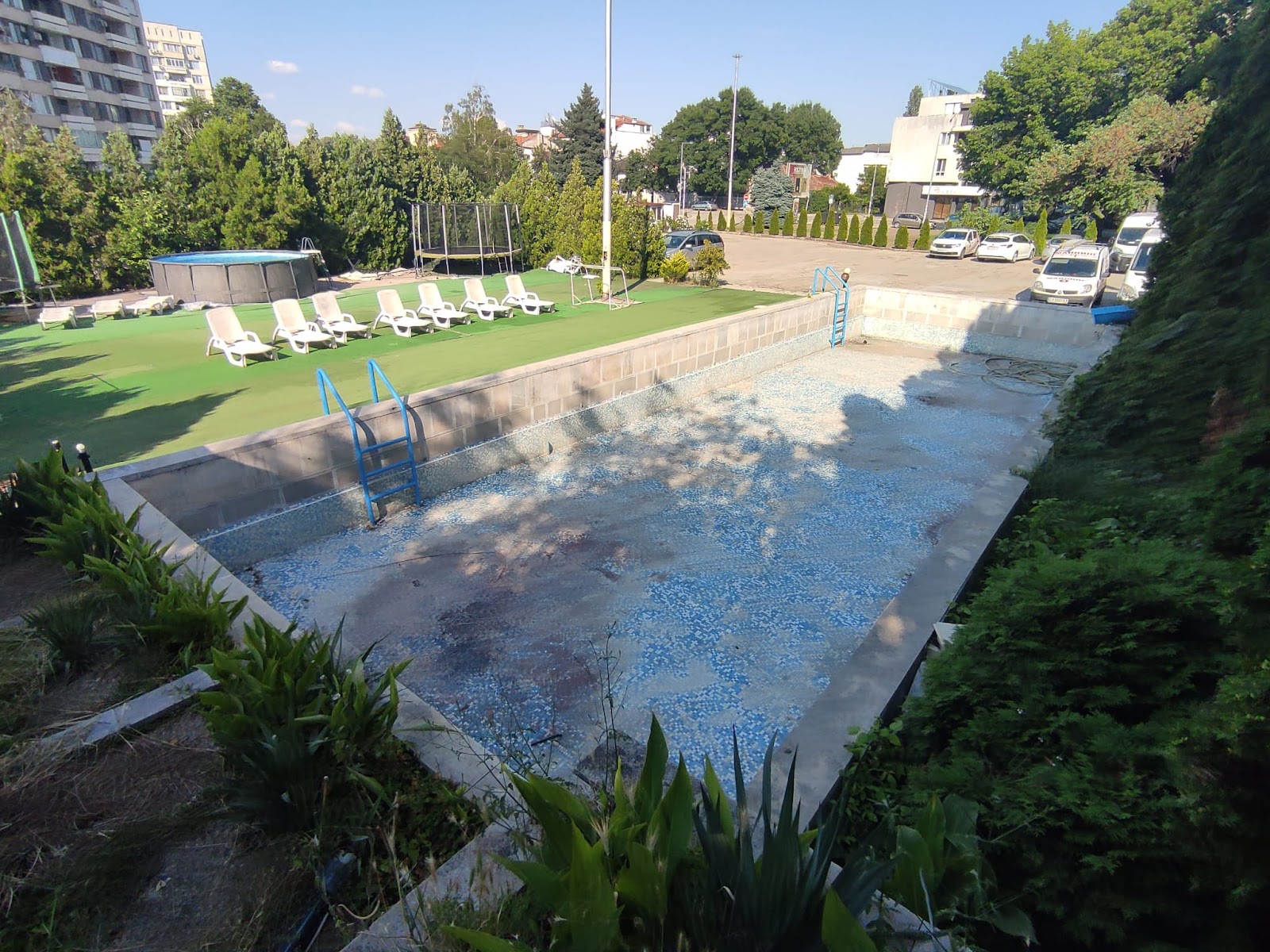

















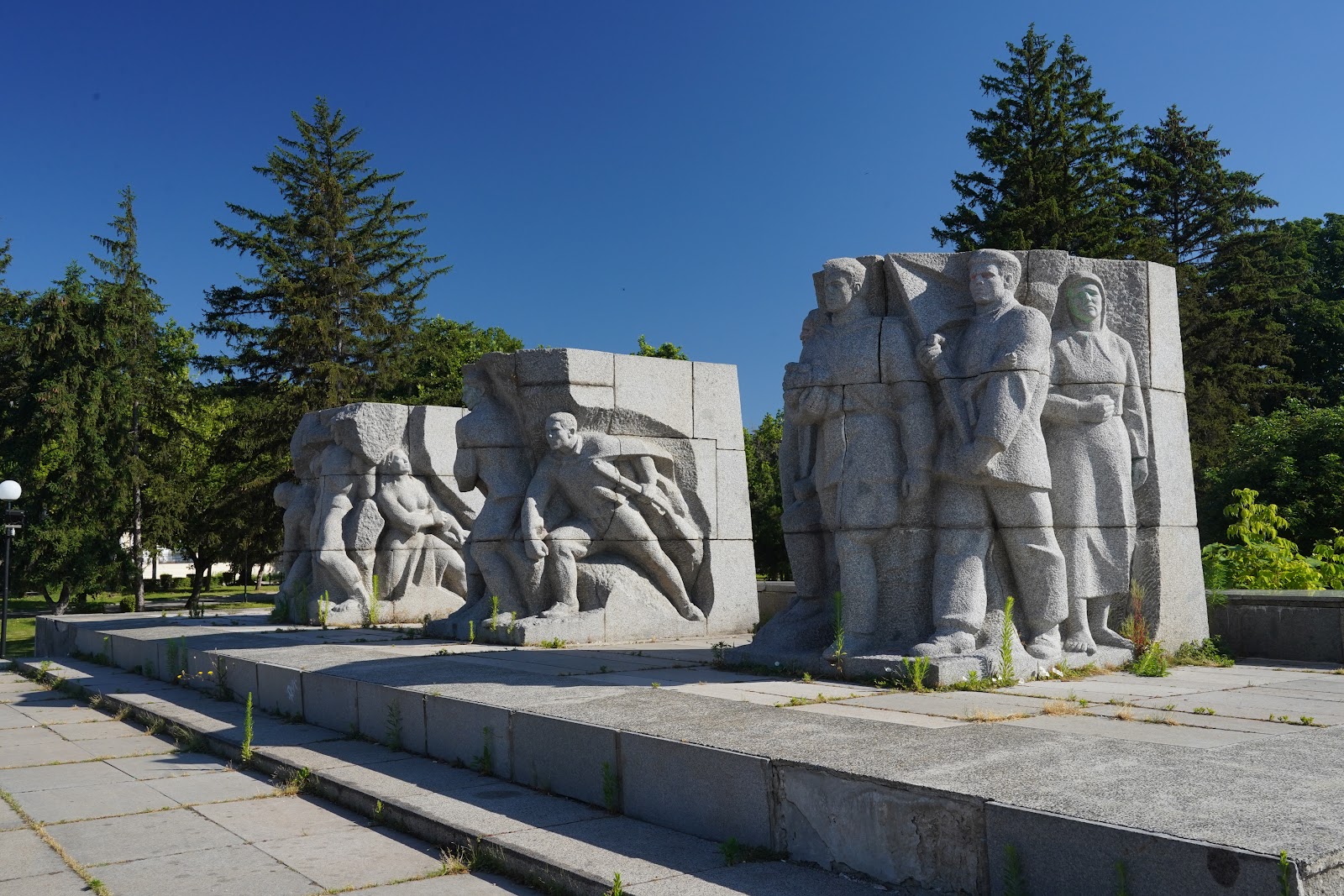




No comments:
Post a Comment